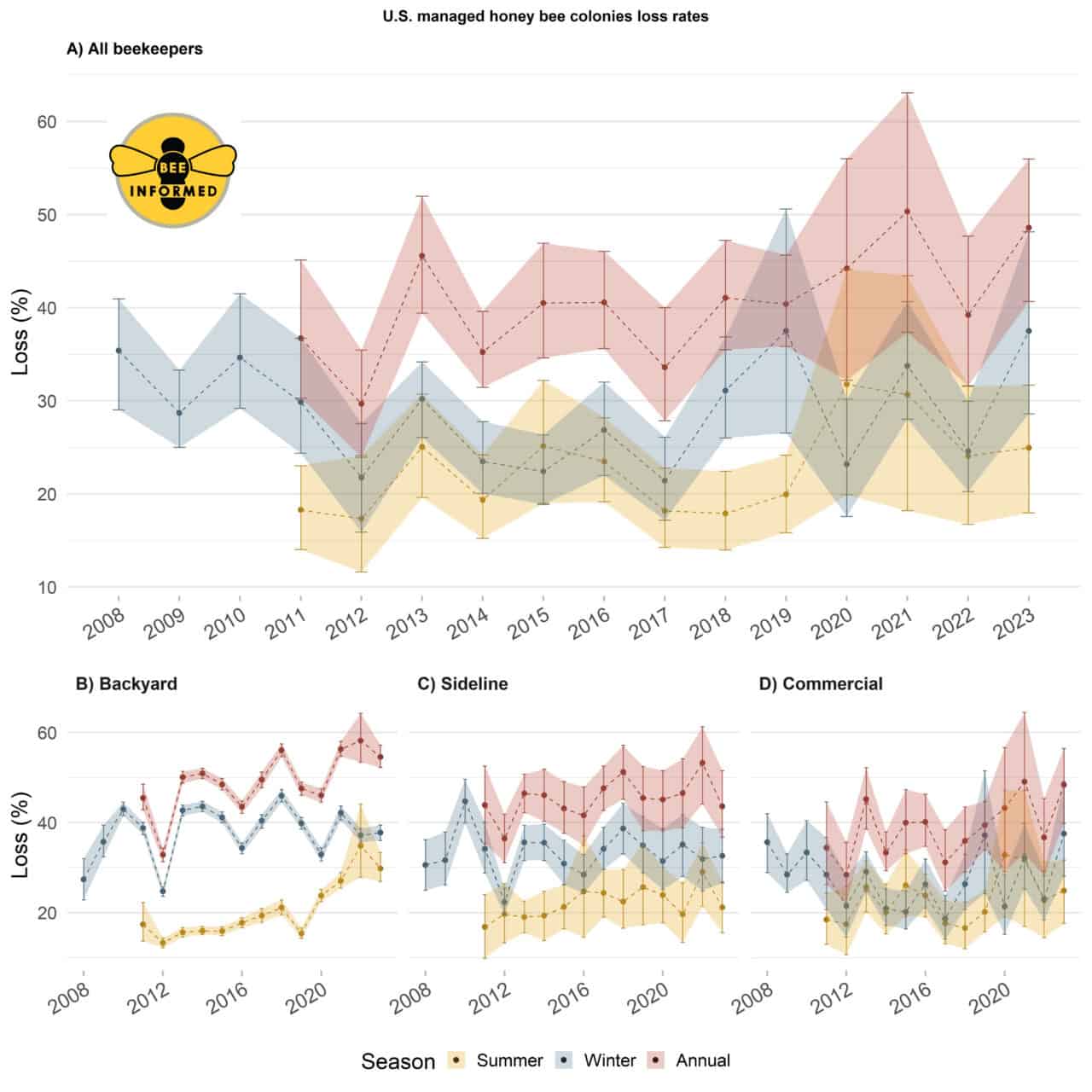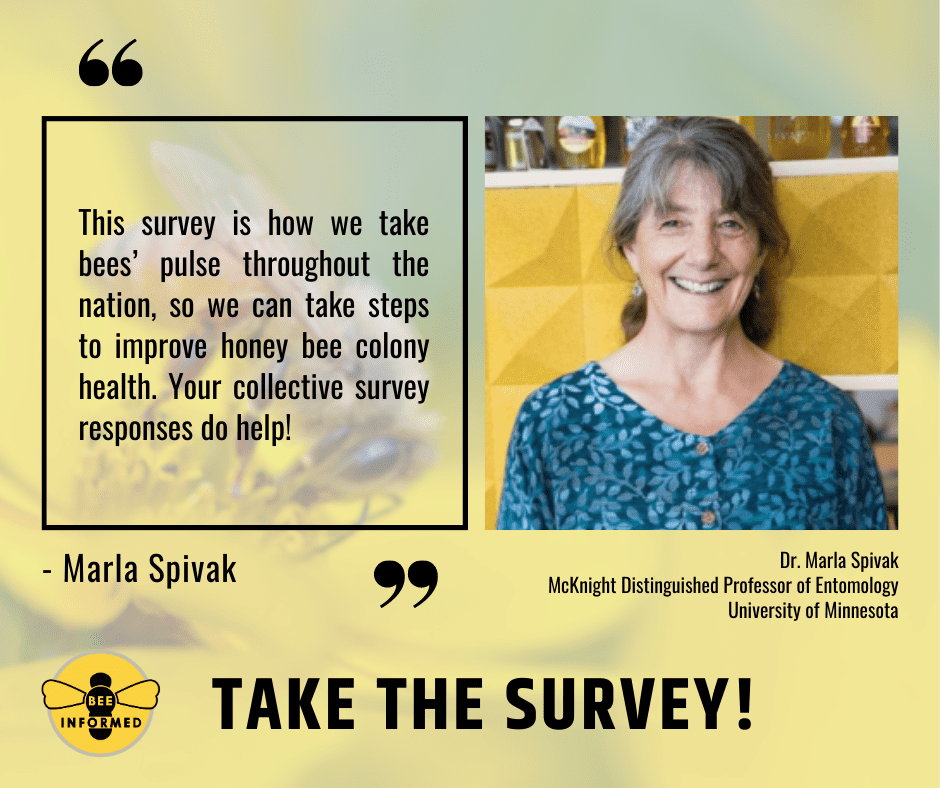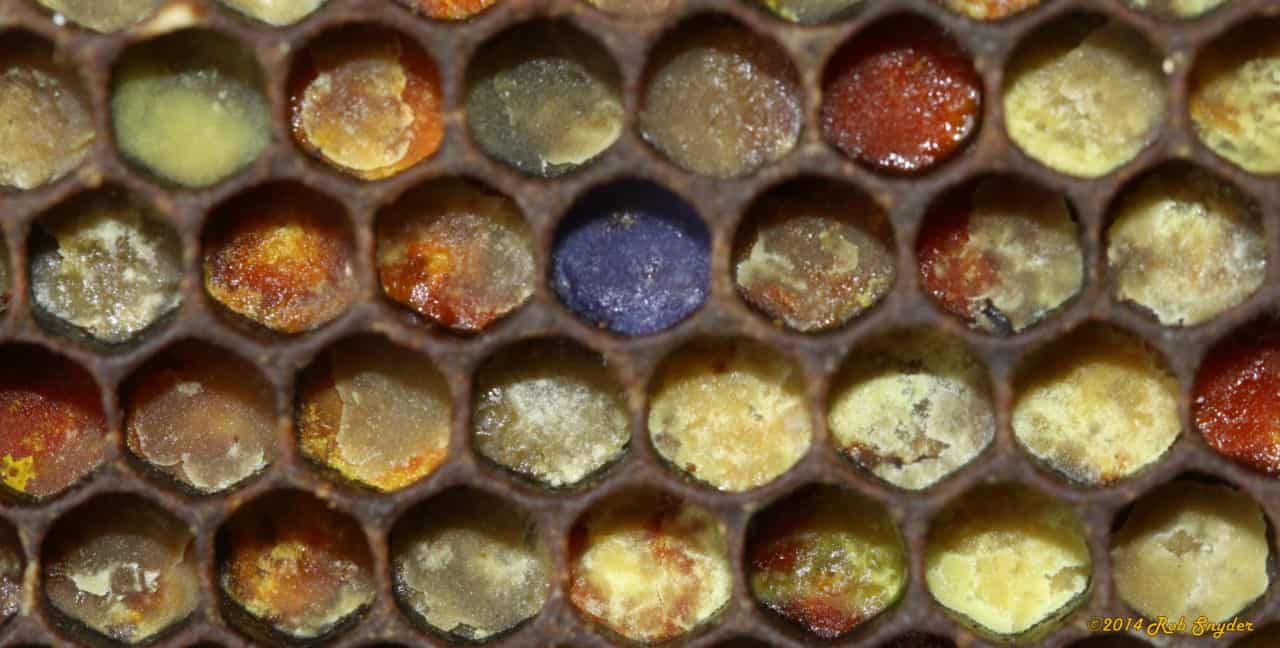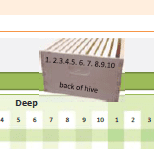Note: This is a preliminary analysis. Sample sizes and estimates are likely to change. A more detailed final report is being prepared for publication in a peer-reviewed journal at a later date. Previous years’ peer-reviewed publication can be accessed on the survey information page: https://beeinformed.org/citizen-science/loss-and-management-survey/. View the PDF version of the abstract here: BIP 2022-23 Loss Abstract To hear more about the results from BIP Science Coordinator Nathalie Steinhauer, watch this video interview from InsideTheHive.TV with Humberto Boncristiani: https://youtu.be/zYyFxjFLVjs Nathalie Steinhauer1, 2, Mikayla Wilson1, 2, Dan Aurell3, Selina Bruckner3, Geoffrey Williams3 1Department of Entomology, University of Maryland, College Park, MD, USA 2Bee Informed Partnership, College Park,…
Author: Nathalie Steinhauer
The Survey Needs You!
The Loss and Management Survey carries many voices! It's strength comes from the many beekeepers who volunteer their time to answer its questions. We're also very lucky to receive support from a wonderful community. Here are some of their voices. “This survey is how we take bees' pulse throughout the nation, so we can take steps to improve honey bee colony health. Your collective survey responses do help!“ – Marla Spivak, University of Minnesota "The BIP Loss and Management Survey generates a countrywide view from citizen scientists of current challenges in beekeeping. It is also the best…
The 2022 Sentinel Apiary Program – Pesticide Testing Is On The Menu
This year's Sentinel Apiary Program has got some new flavor! If you are a returning Sentinel participant, you will have noticed a big change in the Sentinel program protocol this year. In 2022, instead of testing Nosema levels at six monthly intervals, you received two months of Nosema results tested from samples collected in the early part of the season. You also received one composite pesticide sample. As in past years, you continue to receive six months of Varroa lab results to keep you updated on your current mite loads. And more good news! These results are now provided to you at a faster pace…
Interpreting and Understanding the Differences in Honey Bee Colony Loss Numbers From Different National Surveys.
Over the last year, and for the first time, the National Agricultural Statistical Service (NASS) conducted a survey to monitor colony losses. The Bee Informed Partnership (BIP), in collaboration with the Apiary Inspectors of America, has also recently published preliminary loss data covering the same time period. While the core purpose of these two surveys are the same, to track honey bee colony losses in the US, there are significant and important differences in survey design (questions asked), delivery, data presentation, and the methodology by which loss rates are calculated. These differences mean that dissimilarities in loss rates reported by both surveys are expected. This…
UMD Bees All Prepped for Joaquin!
The weather forecast doesn’t look too good for this weekend with hurricane Joaquin heading to the East Coast. In expectation of high winds and rain, we have prepped our colonies at University of Maryland as best we can. The action items here are: remove unused equipment, condense weight close to the ground, strap the boxes together (and even to the hive stand, if you can), weight the top cover and beware of floods. We reduced most of our colonies to 2 deeps high as we started feeding our colonies a couple of weeks ago. This is…
Last Minute Winter Prep
As in the courageous worker ant from the fable, we beekeepers know that winter requires preparation starting in the summer. Bees spend their whole year building strong stores to allow a small fraction of their pairs to cluster around the queen all winter long and launch the colony as soon as possible in the following spring. Winter preparation varies according to your region, but in the end, the core of the winter preparation is always the same: check your hives food stores and feed if necessary, reduce the size of the hive to the size of the cluster (you don’t want to give them too…
Keeping Records 2
You have read my last blog on “why bother to keep records while beekeeping” and you’re convinced. You want to keep records. That’s the attitude! So, how do you keep - good, detailed, relevant, informative, not-too-much-of-a-hassle - record? Short answer: the way you want. Longer answer: You have to pick the method that speaks to you best. Don’t start with too complex a method or you won’t stick to it. If you start by a simple method and notice how it helps you, you will, by yourself, start taking more complex and comprehensives notes. Some beekeepers use a notebook they leave on the hive itself…
Keeping Records
Every beekeeper is a citizen scientist. Have you noticed how in a beekeeping meeting everyone is sharing tips, experience, and advice? We are all comparing our practices, our successes, our failures. We want to hear about other people mistakes (and learn from them). We want to try their recommendations for ourselves. When taking my beekeeping class, the most repetitive advice that our mentors provided us was to keep detailed records. Not only is it a requirement under Belgium’s legislation for hygiene of food products (yes, we do have legislation for everything in Belgium, that’s one of our oldest traditions, along with beer) but the advantages…



